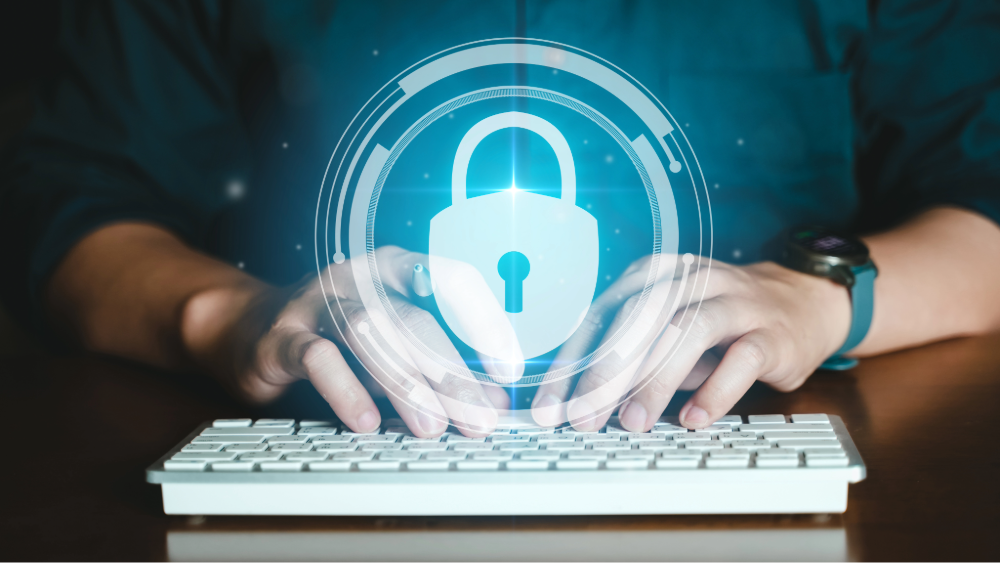Imagine you wake up one morning to your usual routine of checking emails and scrolling social media. However, what awaits is a flood of notifications from unfamiliar accounts thanking you for your recent purchases of luxury watches, handbags, shoes, clothing, etc. Your heart immediately sinks as you realize you have fallen victim to identity theft.
In a digital world where personal information is as valuable as currency, you find yourself in a battle to reclaim your identity and financial security.
Identity theft is when someone wrongfully obtains and uses another person’s personal data, such as their Social Security number, credit card details, or other sensitive information, typically for financial gain or to commit fraud. This can lead to financial, legal, and emotional consequences.
Why Millennials Are at a Higher Risk of Identity Theft
The millennial demographic has emerged as the most common victim of identity theft due to a combination of behavioral patterns and the evolving online world.
According to the 2024 identity theft facts and statistics report from identitytheft.org, consumers in their 30s are the most common victims of identity theft, making millennials the most likely target of identity theft. Additionally, statistics from AAG show that millennials are among the most likely to fall victim to phishing attacks, which can expose people’s information to identity theft.
Millennials can face a heightened risk of identity theft because they are highly active online, engaging in e-commerce, social media, and various online services more frequently than older generations. This heightened activity online can cause millennials to develop a level of trust in online platforms that can lead to a sense of complacency regarding online security.
Also, growing up in the digital age, millennials have a significant amount of personal information available online. This increased digital footprint makes them more susceptible to cyberattacks and data breaches.
By understanding these risk factors, millennials can take proactive measures to protect their identities. These include using strong, unique passwords, enabling two-factor authentication, being cautious with public Wi-Fi, and regularly monitoring financial statements and credit reports. Taking these steps can help mitigate the risk of identity theft and ensure better protection of personal information.
Common Signs of Identity Theft
Financial red flags can appear in various forms. Continue reading below to learn the most common signs.
Unauthorized Transactions: It is important to consciously review your bank and credit card statements regularly for unfamiliar charges or withdrawals. If you notice transactions you did not authorize, it could be a sign of identity theft.
Collection Calls and/or Notices: If you start receiving calls or notices from collection agencies about debts you do not owe, it could be a sign that someone has used your identity to incur debt.
New Forms of Credit: A sudden change in credit score without explanation could indicate someone has opened new accounts or made inquiries using your identity. Oftentimes, scammers attempt to open loans or credit cards in your name.
Account Takeover
In certain scenarios, scammers take control of your personal information to take over the account that controls your access. They may gain access to make unauthorized purchases, change your passwords and contact information, use your email or social media accounts to send spam or phishing messages to your contacts, and potentially even hijack your online identity.
It is essential to help prevent account takeover whenever possible. Use strong and unique passwords, enable two-factor authentication, be cautious and vigilant of unsolicited emails, texts, and calls asking for personal information, and regularly monitor your account activity.
Invest in MyScoreIQ credit monitoring services, which monitor your accounts for possible suspicious activity of new credit inquiries, new loans, and delinquent accounts reported in your name.
Personal Information Issues
Receiving tax documents for unfamiliar employees could be a sign of several potentially concerning issues. This may indicate that someone has used your business’s information to fraudulently employ individuals, potentially for the purpose of evading taxes or laundering money.
This could also signify internal issues with your organization, such as creating fake employees to divert funds or engage in other fraudulent activities.
When your Social Security number is stolen and used to access resources or benefits, this can lead to significant financial consequences. It is essential to immediately report these issues to appropriate authorities, such as the Social Security Administration and credit bureaus, in order to help rectify the situation and protect yourself from further negative impact.
You may also experience being billed for a medical procedures or treatments you never received. This can lead to financial and potentially even medical complications if your medical records become compromised. It is extremely crucial to report instances to your healthcare provider as well as law enforcement to help mitigate further impact.
Mail Disruptions
Stolen identity through stolen mail occurs when a scammer obtains your bank statements, credit card offers, or personal documents. By intercepting your mail, they can obtain enough information to impersonate you or access your accounts. It is crucial to monitor your mail closely and to report possible suspicious activity.
Locking your mailbox or using a P.O. box for sensitive information can help minimize the likelihood of identity theft. If your address has been changed fraudulently, contact your local U.S. Postal Inspection Service office immediately.
Lesser-Known Signs of Identity Theft Millennials Should Watch For
Social Media Mischief
Social media identity theft occurs when someone impersonates you or creates a fake account using your information. This may be used as a tactic to deceive others or engage in malicious activities. This can lead to privacy violations and a negative impact on your reputation. It is important to report instances of social media identity theft to the platform and take measures to help secure your accounts.
Tax Fraud
When someone illegally obtains your Social Security number, they may attempt to file a fraudulent tax return or claim tax refunds illegally. They may also use your information to obtain employment and then file taxes using your details, complicating your tax situation and potentially leading to financial penalties or legal issues. If you feel victim to identity theft, it is crucial to report it to the Internal Revenue Service immediately.
Employment Issues
If your identity has been stolen, it is possible that someone has used your information to commit crimes or engage in activities that could be exposed on a background check. Employers often conduct background checks to help ensure they are hiring trustworthy and reliable candidates. Inaccuracies on a background check should be disputed and rectified as soon as possible to help avoid this issue.
Proactive Steps to Help Protect Yourself
Secure Your Digital Life
One of the best ways to help ensure your information is secure is two-factor authentication for all accounts. This is a security measure that adds an additional layer of protection to your online accounts. After entering your username and password, you will be required to provide a second form of verification. In relation to gaining access to your accounts, setting up unique and strong passwords also helps mitigate the risk of potential scammers.
Be wary when using public Wi-Fi and avoid sensitive transactions while on an unsecured network. This is a simple yet easy and effective way to help protect your identity.
Guard Your Personal Information
A simple way to help protect your personal information is to shred sensitive documents prior to discarding them. This conceals sensitive information that may be thrown away that criminals might look for later.
It is also important to be mindful of what information you share online and on social media. Not everyone is your friend. Do not click on suspicious links or attachments in emails, texts, or private messages.
Monitor Your Credit
Having a suspicious account show up on your credit report is often one of the first signs of identity theft. It’s essential to actively monitor your credit report and receive alerts for possible suspicious activity.
Identity Theft FAQs
Here are answers to some of the common questions surrounding identity theft.
How can you tell if your identity has been stolen?
You might suspect your identity has been stolen if you notice unexpected charges on your accounts, unfamiliar accounts or inquiries on your credit report, missing bills, or receive debt collection calls for debts you didn’t incur. Additionally, government notices about actions you didn’t take or unexpected changes to your online accounts can also be indicators.
How is identity theft detected?
Identity theft is often detected through unexpected account charges, unfamiliar credit report entries, missing bills, or suspicious government notices, as well as receiving debt collection calls for unknown debts and notifications of account changes you didn’t make.
How does identity theft commonly happen?
Identity theft commonly occurs through data breaches, where personal information like Social Security numbers, credit card details, and other sensitive data are stolen from companies or institutions and used fraudulently.
How do I check if my SSN is being used?
To check if your Social Security Number (SSN) is being used fraudulently, review your credit report for any unfamiliar accounts or activities, and check your Social Security statement for any suspicious earnings or benefits claims.
What is your first step if your identity has been stolen?
If your identity has been stolen, immediately report the crime to the local authorities and the Federal Trade Commission (FTC). Next, reach out to your financial institutions and the major credit bureaus to freeze your accounts and add a fraud alert to your credit reports.
Can someone open a bank account in your name without you knowing?
Yes, someone can open a bank account in your name without your knowledge if they have access to your personal information, such as your Social Security number and date of birth. To protect yourself, monitor your credit reports regularly and consider placing a fraud alert or credit freeze on your accounts.
What age group is targeted most for identity theft?
Millennials are at a higher risk of being targeted by identity thieves. Statistics from identitytheft.org show that consumers ranging from age 30 to 39 are the most likely victims of identity theft.
Bottom Line
Understanding the signs of identity theft is paramount for every millennial in today’s digital world. Cybercriminals are on the rise, however by staying vigilant and practicing safety measures, you can help protect yourself. Recognizing the red flags such as unauthorized financial transactions, unexpected denials of credit, or unfamiliar accounts and charges can help millennials detect identity theft early and take appropriate action.
Becoming a member of MyScoreIQ identity monitoring services is an investment in yourself that allows you to go about your daily activities in peace, knowing your identity is protected. MyScoreIQ offers constant monitoring of not only your identity but your credit score and financial accounts. Members are alerted of possible suspicious activity in real time so they can take immediate action.
By staying informed, practicing good cybersecurity habits, and utilizing security measures, millennials can help protect themselves against the constant threat of identity theft.
Resources:
- https://www.usa.gov/identity-theft
- https://www.identitytheft.gov/
- https://consumer.ftc.gov/articles/what-know-about-identity-theft
- https://consumer.ftc.gov/articles/how-protect-your-child-identity-theft
- https://www.texasattorneygeneral.gov/consumer-protection/identity-theft/what-identity-theft
- https://www.consumerfinance.gov/ask-cfpb/how-can-i-spot-identity-theft-en-1359/
- https://www.irs.gov/newsroom/taxpayer-guide-to-identity-theft
- https://dcba.lacounty.gov/portfolio/identity-theft-victims/
- https://www.cbsnews.com/news/signs-youre-a-victim-of-identity-theft-what-to-do-about-it/
- https://www.ftc.gov/system/files/ftc_gov/pdf/CSN-Annual-Data-Book-2023.pdf











